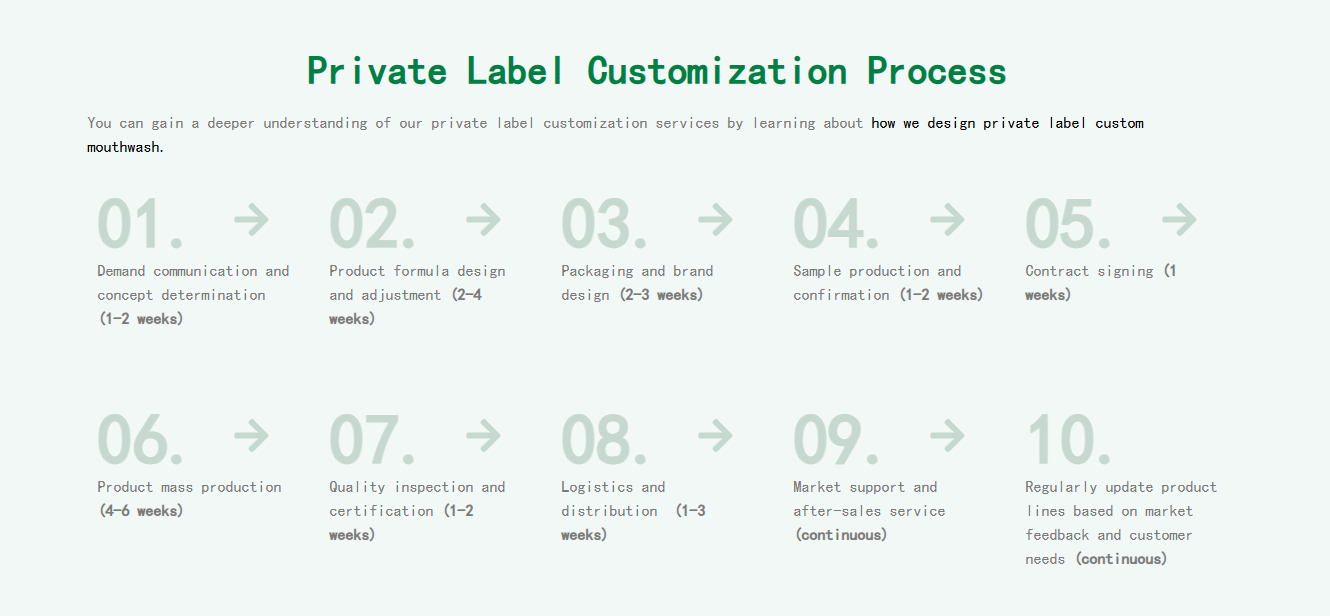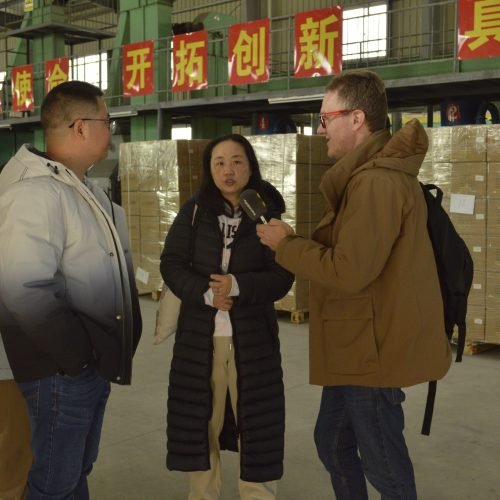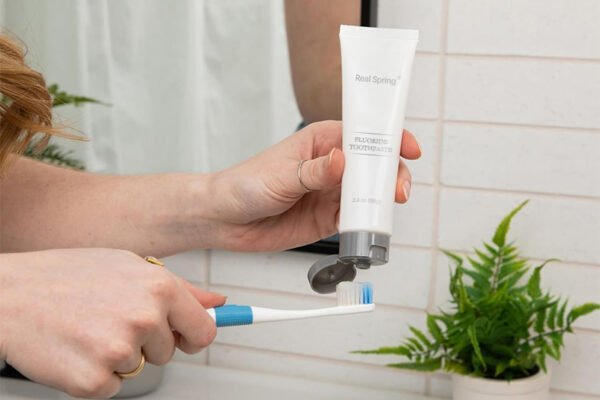جدول المحتويات
Many entrepreneurs dream of launching their own شامبو العلامة التجارية الخاصة, but they often get stuck at the first hurdle: choosing the right shampoo manufacturer. The truth is, picking a reliable manufacturer can save you time, money, and headaches, while a bad choice might sink your brand before it even takes off. Whether you’re targeting natural skincare enthusiasts or salon professionals, the manufacturer you partner with will shape everything from product quality to how quickly you can get to market. In this guide, we’ll break down how to spot a trustworthy shampoo manufacturer, avoid common pitfalls, and set your private label shampoo up for success.
I. Why Choosing Shampoo Manufacturer Makes or Breaks Your Private Label Shampoo
Launching a private label shampoo lets you build a brand without investing in factories or labs—but none of that matters if your manufacturer drops the ball. Imagine this: You spend months designing a logo and marketing plan, but the shampoo arrives with inconsistent texture, or the scent fades after one wash. Customers complain, and your brand reputation takes a hit. On the flip side, a great manufacturer acts like a co-founder: They’ll help you refine formulas, navigate certifications, and even suggest packaging that stands out on shelves.
Take our manufacturer, we don’t just produce shampoo, we also offer OEM service for daily chemicals, from formulating camellia oil-infused formulas to designing eco-friendly packaging. If you want to tap into the Muslim market, they’ll guide you through halal certification. If natural ingredients are your focus, they’ll highlight their sustainably sourced camellia oil, which meets the highest health standards. A manufacturer like this doesn’t just make products—they help you build a brand that resonates.
II. 3 Hidden Pitfalls to Avoid When Choosing a Shampoo Manufacturer
1. Obsessing Over Price Instead of “Tech Fit”
It’s tempting to go with the cheapest shampoo manufacturer, but low prices often come with hidden costs. Some factories cut corners by using industrial-grade surfactants instead of cosmetic-grade ones, or they reuse outdated formulas that don’t match modern trends (like sulfate-free or vegan). The result? Your private label shampoo might feel greasy, irritate scalps, or fail to impress your target audience.
Instead of fixating on price, focus on “tech fit”: Does the manufacturer specialize in what you need? If you’re launching an organic argan oil shampoo, Guangzhou Xiran Cosmetics (known for their natural, sulfate-free blends) is a better fit than a factory that mainly produces budget dandruff shampoo. Matching their expertise to your vision will save you time and money in the long run.
2. Believing “Certification Overload” Without Checking the Fine Print
Many shampoo manufacturers plaster their websites with logos: “GMP Certified!” “Halal Approved!” But not all certifications are created equal. One brand learned this the hard way when their “halal-certified” shampoo was banned in Dubai—turns out, the factory had faked the certification.
To avoid this, verify certifications with the issuing bodies. For halal, check if it’s from reputable organizations like Malaysia’s JAKIM or Indonesia’s MUI. For GMP, confirm it’s accredited by third parties like Intertek (SLUJ Hair Care Factory, for example, proudly displays their Intertek GMP certification). Ask for original documents—if a manufacturer hesitates, walk away.
3. Ignoring Small-Batch Testing Capabilities
“Our minimum order is 100,000 units!” Sounds impressive, right? But ordering that many without testing is risky. What if your target market finds the fragrance too strong? You’ll be stuck with mountains of unsold inventory.
Smart brands start small. Manufacturers like Blackbird Skincare offer 500-unit minimums, letting you test samples with real customers. Adjust the formula based on feedback—maybe add more mint for freshness—and then scale up. As a shampoo wholesale manufacturer, we also support small-batch trials, proving they care about your brand’s success, not just making a quick sale.
III. 5 Golden Standards for a Top-Tier Shampoo Manufacturer
1. End-to-End Service: From Idea to Shelf

The best shampoo manufacturers act as your one-stop shop. Tell them, “I want a curly hair shampoo that fights frizz,” and they’ll deliver: a formula with coconut oil, packaging that’s easy to squeeze in the shower, and even tips on labeling to meet EU regulations. We excel here—we have full chain service for creating private label shampoo that handles everything from sourcing camellia oil to designing recyclable bottles, so you can focus on marketing.
2. Transparent Sourcing: They’ll Show You Where Ingredients Come From
Trustworthy manufacturers don’t hide their supply chain. Puresource, for example, openly shares that their organic aloe vera comes from Canadian farms. As a professional manufacturer, we step further, explaining our camellia oil is hand-selected from sustainable plantations. This transparency builds trust with consumers who care about “clean beauty”—and it protects you from accidentally using unethical or low-quality ingredients.
3. Flexibility: They Can Scale With Your Needs
What happens when your private label shampoo goes viral? A good manufacturer will ramp up production quickly. Yangzhou ECO AMENITIES, with multiple liquid production lines, can boost output during peak seasons, so you never miss a sales opportunity. Avoid factories that struggle to adjust—delayed shipments can kill momentum.
4. Market Savvy: They Know What Sells
Great shampoo manufacturers don’t just make products—they understand trends. If you’re targeting Gen Z, they’ll suggest adding scalp-care ingredients like rosemary oil (a hot trend in 2025). Our blog even shares insights, like how oil-control shampoos dominated Wimbledon, proving they stay ahead of market demands. Partnering with someone who “gets” your audience means your shampoo will resonate faster.
5. Sustainability: They Walk the Eco-Talk

Consumers today choose brands that care for the planet. Look for manufacturers using renewable energy, biodegradable packaging, or responsibly sourced ingredients. Our commitment to product quality control checks this box, making your private label shampoo more appealing to green-minded shoppers, and offering them the best using experience.
IV. Real-Life Wins: Brands That Nailed Their Manufacturer Choice
1. A Mom-and-Pop Organic Brand
One entrepreneur wanted a pregnancy-safe shampoo. Their first manufacturer’s sample was too thick, but we adjusted the formula with lighter oils, tested 500 bottles with expectant moms, and refined the scent. The final product now flies off shelves in maternity stores—all because they prioritized small-batch testing.
2. A Cross-Border Success Story
A brand targeting the Middle East focused on halal certification. They picked us after verifying their JAKIM accreditation, and their shampoo became a bestseller in Saudi Arabia. “The authentic certification turned into our biggest marketing tool,” the founder said.

خاتمة
Choosing a shampoo manufacturer isn’t just about production—it’s about finding a partner who helps your private label shampoo thrive. Skip the factories that cut corners or overpromise. Instead, look for those with end-to-end service, transparent sourcing, and a commitment to your success.
كـ professional shampoo manufacturer, and with our 20 years of expertise, we have small-batch flexibility, and focus on quality, check all these boxes. So, ask potential manufacturers: “Can I test 500 units? Will you show me your ingredient sources? Can you help me tweak the formula for my audience?” The right answers will lead you to a manufacturer who doesn’t just make shampoo—they help you build a brand people love. Your private label journey starts now—choose wisely!








